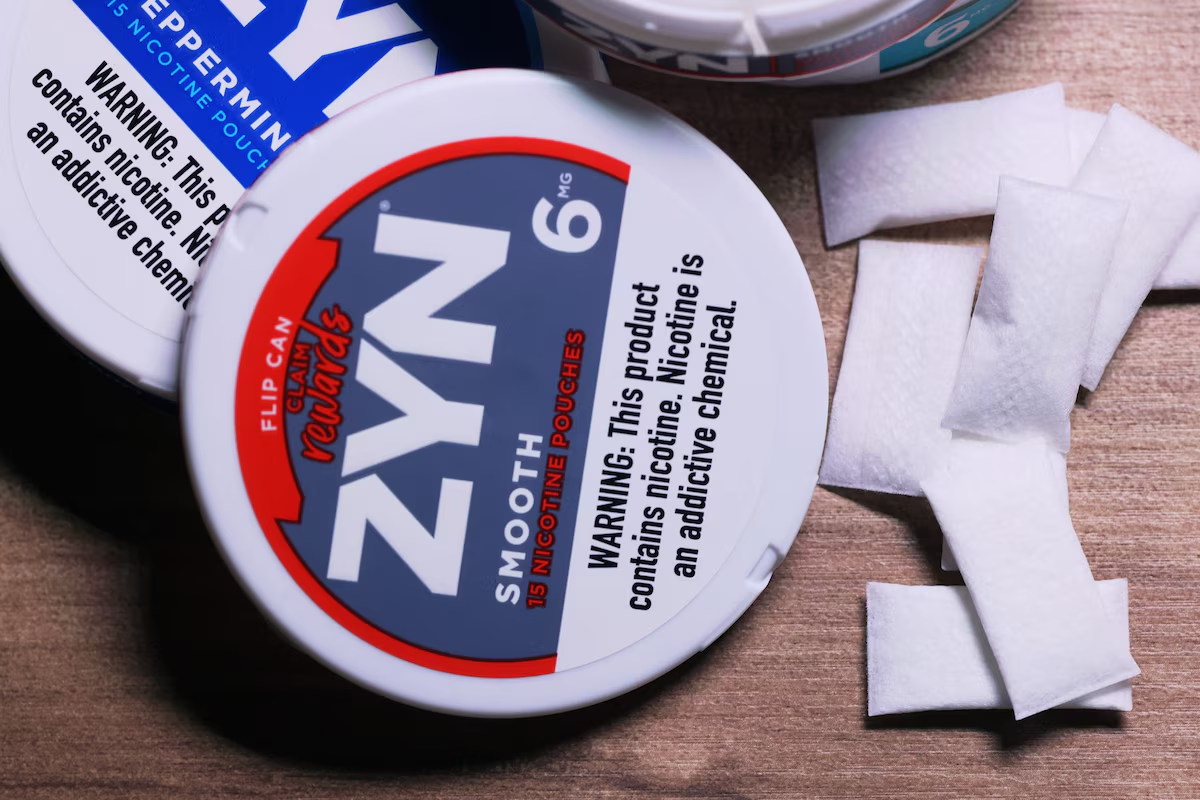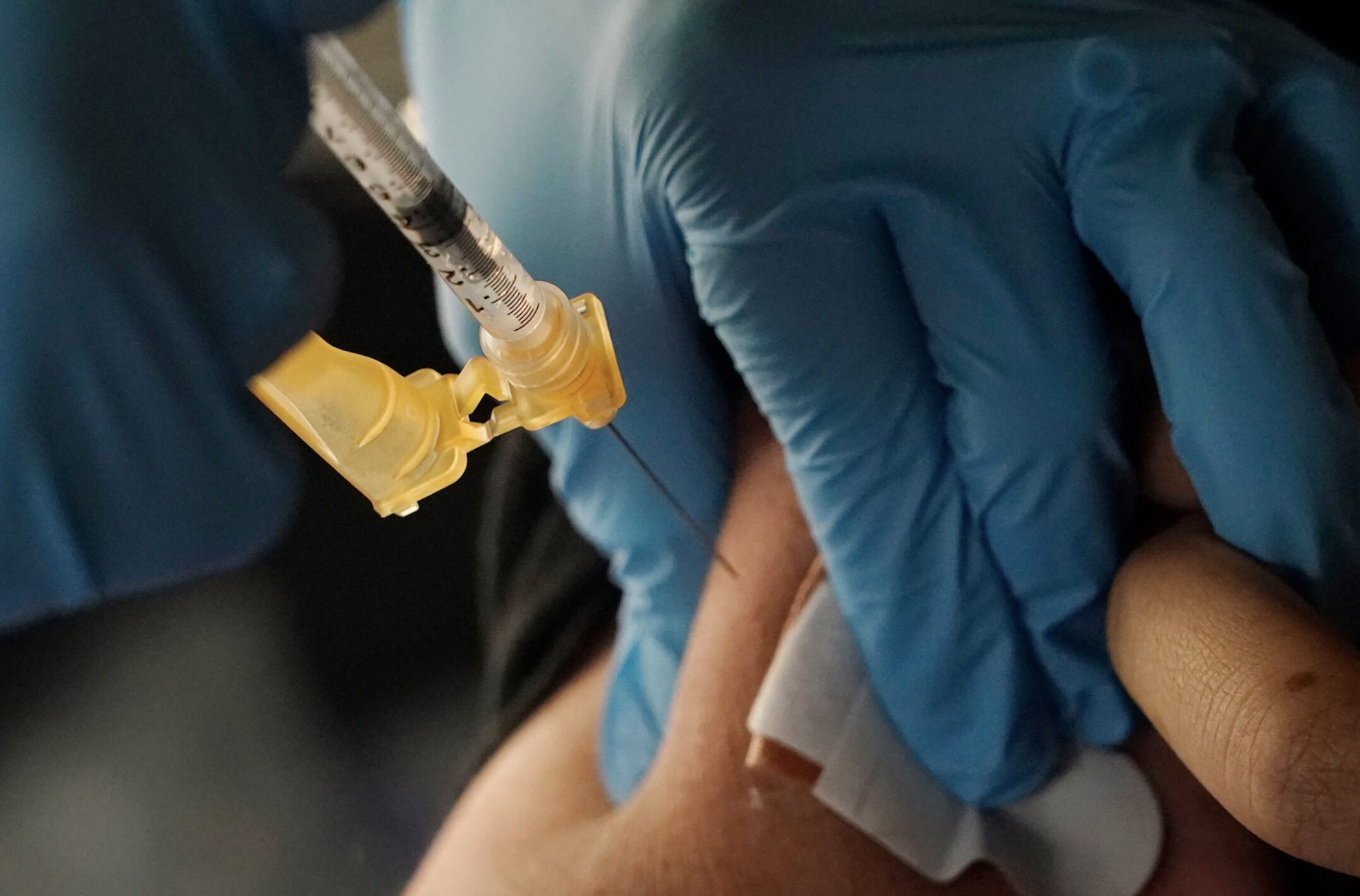Teen nicotine use is finally declining again, thanks to years of educational campaigns and coordinated policies to discourage kids from vaping. The recent surge had reached its peak in 2019, with as many as 27 percent of high school students reporting using electronic cigarettes in the past 30 days; by 2024, that number had fallen to about 8 percent.
But these gains are now at risk of being undone. The culprit: nicotine pouches that, like electronic cigarettes, are marketed as a less harmful alternative for adult smokers. In reality, these products could reverse public health progress by addicting a new generation to nicotine.
Consumers may be under the impression that the danger of tobacco products comes primarily from smoking, not the consumption of nicotine. Indeed, burning tobacco releases toxic compounds, and cigarette smoking causes many chronic diseases including cancer and heart disease. This was the rationale behind electronic cigarettes and smokeless tobacco products, which offer nicotine without combusting tobacco.
But nicotine itself is far from harmless. Not only is it a highly addictive substance, but multiple studies have shown that it alters brain development. Use in adolescence reduces cognitive function; decreases attention span and memory; increases impulsivity; and enhances anxiety, fear and depression. Moreover, chronic use causes long-term changes in the brain’s reward system, priming the brain for other addictions.
Nicotine pouches offer a novel method to deliver the toxic drug. These small packets contain nicotine powder or salts, which users place between their lips and gums. Most contain 1.5 to 8 milligrams of nicotine, but some can have as much as 50 milligrams per pouch — the equivalent of smoking as many as eight cigarettes. Unlike traditional smokeless tobacco, they don’t require spitting, making them easy to use undetected. A survey of youths confirmed that the biggest advantages included concealability and use in places that prohibit vaping.
Another factor especially attractive to youths is the wide variety of available flavors. In January, the Food and Drug Administration authorized the marketing of nicotine pouches called ZYN, including in flavors such as citrus, coffee, cinnamon and peppermint — much to the chagrin of anti-smoking advocates. Many other flavors, such as bubble gum, watermelon and cherry, are sold illicitly or through legal loopholes.
All of this comes right out of the electronic cigarette playbook. Manufacturers are even duplicating electronic cigarette marketing tactics. Videos of young people using nicotine pouches have garnered millions of views across social media, fueled by “ZYN-fluencers” hired to make pouch use seem cool and rebellious. Other strategies include sponsoring music festivals and car races and advertising in fashion magazines.
And it’s working. A recent JAMA Network Open study found that nicotine pouch use among high school students doubled between 2023 and 2024, from 1.3 percent who used such products in the last 30 days to 2.6 percent. The Centers for Disease Control and Prevention similarly concluded that although electronic cigarettes remain the most used tobacco product among middle and high school students, nicotine pouches have become the second-most common.
To be sure, these numbers are far from the vaping craze’s worst levels, but they still translate to about half a million teens using a product linked with serious harms. As Yolonda C. Richardson, president and CEO of the Campaign for Tobacco-Free Kids, told me, that’s a prevalence that should alarm parents and policymakers.
Effective policy should seek a balance between limiting youth access while preserving the potential benefits that this product can offer to adult smokers trying to move away from cigarettes. This includes enhancing enforcement to remove unauthorized products, banning online purchases and restricting sales to carefully monitored retail outlets such as pharmacies. Lawmakers should also ban flavored nicotine products and prohibit advertising across social media and youth-oriented venues.
These common-sense proposals will be opposed by pouch manufacturers, which, as it happens, are Big Tobacco companies. ZYN is owned by Philip Morris International, home of Marlboro cigarettes. Other popular products include On!, made by Altria, the tobacco giant that had invested in JUUL electronic cigarettes, and Velo, made by British American Tobacco, the purveyor of Lucky Strike and Pall Mall.
Richardson, like many advocates, believes that pouches are the latest salvo by these companies to compensate for diminishing cigarette sales by building a new base of nicotine users. She cites the statistic that nearly 90 percent of adult smokers begin before they turn 18.
“If they don’t capture the market when they’re teenagers, then they miss the opportunity to bring on new customers,” she said. By hooking young people early, Big Tobacco ensures a steady demand from users seeking a nicotine fix. And wouldn’t you know it, they have an entire suite of offerings, from modern pouches to good old cigarettes and everything in between.
No one should be surprised by this cynical strategy of the tobacco industry. Health officials must act now before the industry’s harm- reduction narrative becomes just another marketing trick that leads to lifelong dependence.
Dr. Leana Wen is a compelling keynote speaker because she combines her expertise as a physician and public health leader with a unique ability to translate complex medical issues into clear, actionable guidance for the public. Her thoughtful commentary on critical health topics—from vaccines to health equity—makes her an invaluable voice in today’s fast-evolving healthcare landscape. With her deep experience in both clinical practice and policy, she empowers audiences to make informed decisions and engage meaningfully with public health challenges. To host her at your event, contact us.







